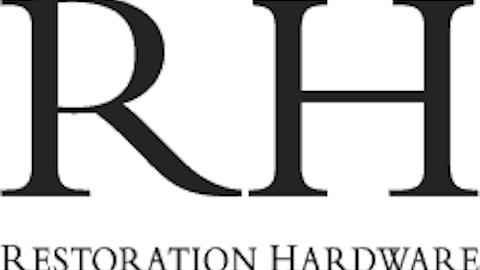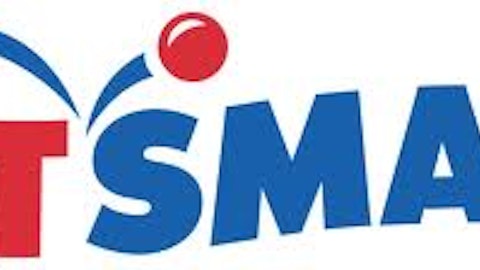Anybody following Sears Holdings Corp (NASDAQ:SHLD) over the last few years knows that several major investors have proclaimed that the value of the real estate holdings vastly exceed the current stock valuation. The rub with Sears Holdings Corp (NASDAQ:SHLD) remains that the retail operations are difficult for the average investor to separate from the valuation of the assets that go far beyond the real estate holdings. Investor after investor proclaims the company worthless due to a lack of profits from the retail operation, but the company has a vast array of assets worth billions upon billions that are hidden.
In the last week, the stock has soared due to a massive 139-page research report by Baker Street Capital, which owns 1.5 million shares or over $80 million at recent prices. The investment theme hearkens back to the real estate holdings that most investors know haven’t led to stock market gains, but some of the research unearthed by Baker Street suggests now could be different.
Though the opinion that Sears Holdings Corp (NASDAQ:SHLD) is valued favorably to Simon Property Group Inc (NYSE:SPG) or General Growth Properties Inc (NYSE:GGP) is nothing new, the research by Baker Street actually unearthed a plethora of discoveries regarding real estate developments that aren’t being marketed by the company to investors.
Simon Property Group Inc (NYSE:SPG) and General Growth Properties Inc (NYSE:GGP)
One of the biggest outcomes from the advent of online shopping (and, in part, the financial crisis) was the supposed destruction of the mall shopping experience. As the theory goes, consumers were no longer interested in driving to malls to shop when it was so convenient to shop online. Ironically, the mall owners are now telling a different story. Not only are rental rates up at the major malls (ones where Sears Holdings Corp (NASDAQ:SHLD) owns stores), but also new malls aren’t being built. In essence, demand is at a five-year high while supply is at a 35-year low.
Simon Property Group Inc (NYSE:SPG) owns or has an interest in 324 retail properties comprising 241 million square feet. The stock is valued at an incredible $46 billion, further providing reason why Bruce Berkowitz and the Fairholme Fund invested so heavily in Sears Holdings Corp (NASDAQ:SHLD). Note that Sears Holdings Corp (NASDAQ:SHLD) has roughly 250 million square feet of real estate. In addition, Simon Property has over $22 billion in debt while Sears has the real estate assets virtually unencumbered. That places the enterprise value of Simon Property at over $67 billion while Sears has a market cap of only $6 billion with cash and inventory to cover any debt.
Another premium and regional mall owner, General Growth Properties Inc (NYSE:GGP) owns 123 malls that encompass 128 million gross square footage. With a market cap of $18.3 billion and net debt of nearly $15 billion, General Growth again trades at a significant premium to Sears. The company is valued at roughly $143 per square foot and closer to $250 when considering the large debt position.
Lackluster retail operations
A common mistake made by retail investors is to invest in a stock based solely on the price-to-sales or price-to-earnings multiple without even analyzing the assets of the stock. The common theme with Sears is to focus on the inability of Eddie Lampert to turn around the retail operations of Sears and Kmart. The typical analyst rehashes the concept that Lampert has constantly under invested in sprucing up stores to attracting consumers. That theme, though, is mostly misplaced as Lampert never had a sole focus to turn around the stores; instead he hoped to develop an online presence, which now ranks only behind Amazon.com and Wal-Mart, while limiting the capital improvements on stores since the plan was to sublease and redevelop the assets anyway.
As an example of the weak retail operations, the company reported a large $194 million net loss, or $1.83 per share. While the adjusted EBITDA loss was only $55 million, it compares negatively to the $116 million gain in the prior year quarter. In general, analysts expect large losses to continue for the next few years.
Have you heard of Seritage?
Even as a long-term investor, it was surprising reading the research from Baker Street regarding the subsidiary Seritage Realty Trust. Not that it hasn’t been discussed on numerous occasions that Sears was in the works to sublease space or sell properties, but the vast details regarding the sub-division of anchor pads or the redevelopment of Sears Auto Center outparcels is widely unknown and not marketed by the company.
As a subsidiary of Sears, the company lists the goal as redeveloping over 200 properties in 33 states and covering 18 million square feet. A key investing point for understanding Sears is that the value of the vast real estate holdings is not based on what Sears is currently doing with it, but rather what another retailer could produce out of the same prime space in some of the best malls around the country.
Bottom line
The real estate value proposition appears mostly ignored by the market regardless of compelling investors such as Berkowitz or the intriguing report from Baker Street. On top of that, the valuation propositions compared to General Growth Properties and Simon Property Group Inc (NYSE:SPG) should be difficult to ignore. Of course, the key to the value proposition is turning these valuable assets into income earning properties. The details provided by Seritage suggest that the company is farther along in the process than the market realizes and hence value could be unlocked quicker than expected.
The article Sears Holdings’ Incredible Hidden Value originally appeared on Fool.com is written by Mark Holder.
Mark Holder and Stone Fox Capital have a position in Sears Holdings. The Motley Fool has no position in any of the stocks mentioned.
Copyright © 1995 – 2013 The Motley Fool, LLC. All rights reserved. The Motley Fool has a disclosure policy.






